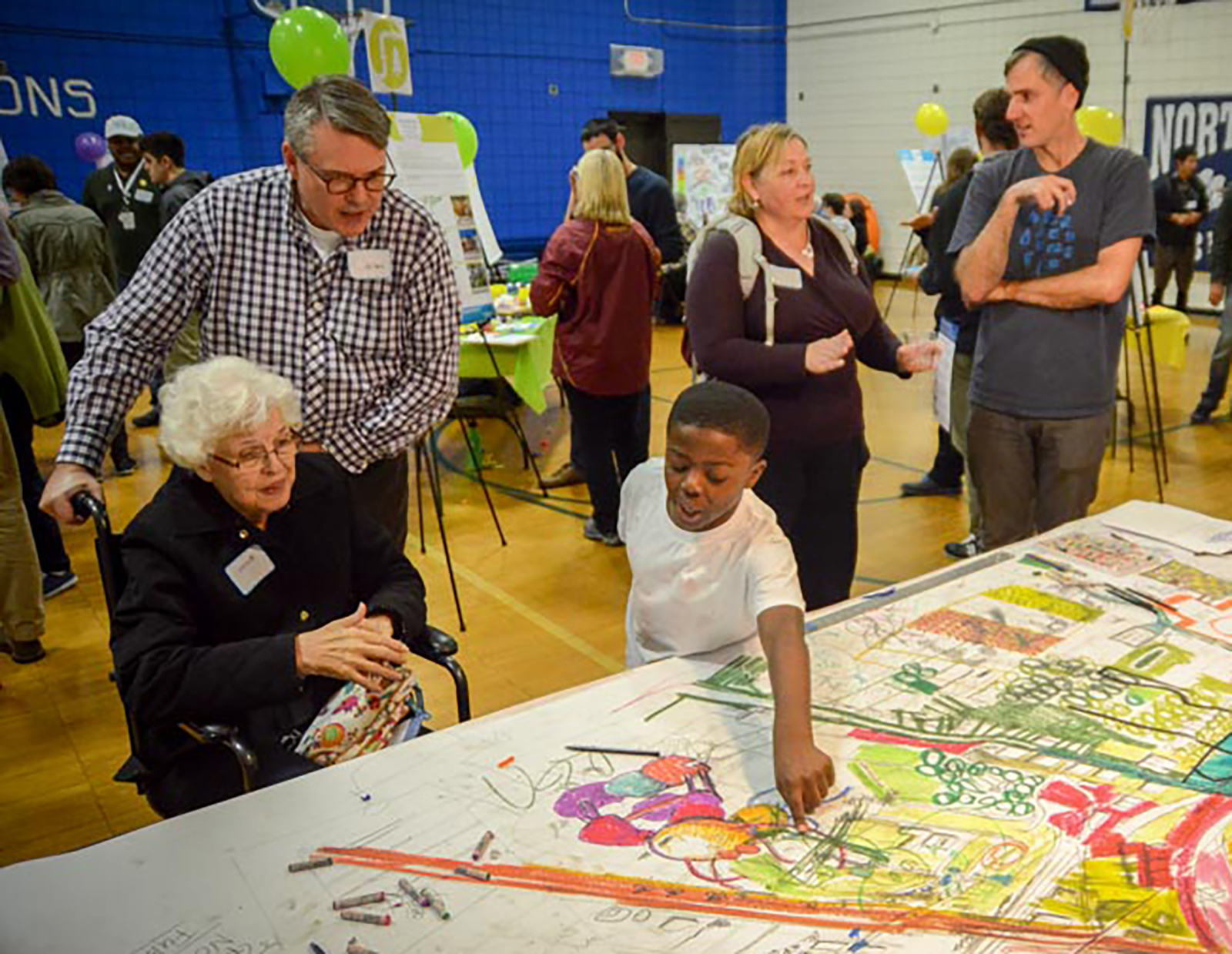14. Equitable civic participation system: In 2040, Minneapolis will have an equitable civic participation system that enfranchises everyone, recognizes the core and vital service neighborhood organizations provide to the City of Minneapolis, and builds people’s long term capacity to organize to improve their lives and neighborhoods.

In 2016 Minneapolis conducted a survey of its residents. Nearly half of the respondents indicated they do not feel they can influence decisions made in the City of Minneapolis. Approximately 30 percent of respondents felt they did not have a voice about issues important to them when interacting with the City. For Minneapolis to successfully implement the policies in this plan and work toward achieving its goals, it’s important to give stakeholders a voice and the capacity to influence decisions.
This plan strives to eliminate disparities among people of color and indigenous peoples compared with white people. This includes differences in rates of civic participation such as representation on neighborhood organization boards and City boards and commissions, and levels of engagement on issues, policies, regulations, programs and other City efforts. Implementing many of the policies of this plan requires a greater understanding of Minneapolis’ diverse communities to identify and remove barriers to participation. It also requires deeper and ongoing engagement, specifically with a focus on people of color, indigenous people and vulnerable populations such as low-income households, the elderly and people with disabilities. This means continuing to explore new methods and techniques to not only engage with underrepresented populations but to build trust and strengthen connections. And it means partnering with organizations such as cultural groups and neighborhood organizations that already have connections in the community and can help proactively engage residents on City activities.
To achieve the goal of an equitable civic participation system, the City of Minneapolis will actively build the community’s capacity to strengthen authentic engagement through neighborhood associations and City advisory committees and to facilitate meaningful resident input into City policies, programs and procedures; and it will work to maximize the involvement of renters, people with disabilities, people of color, indigenous people and others who have been historically underrepresented in civic life. This requires deepening an understanding among City staff of Minneapolis’ diverse communities, their histories, and how the government has impacted them over time The City will track the progress of engagement improvements as well as ensure that City staff reflects the diversity of Minneapolis’ residents.
The City will also help foster the kinds of social connections that encourage and promote civic participation by ensuring safe and welcoming community spaces for all to connect with each other, including parks, community and youth centers, and city streets and rights of way.
 Policies
Policies
8 Policies relate to this goal. Click on a policy below to learn more about it.
Social Connectedness
POLICY 81
Healthy Youth Development
POLICY 79
Public Services Policy
POLICY 88
Technology in the City Enterprise
POLICY 89
Arts and Culture in Community Development
POLICY 32
Heritage Preservation Outreach
POLICY 91
Cultural Districts
POLICY 34
Place-based Neighborhood Engagement
POLICY 100

